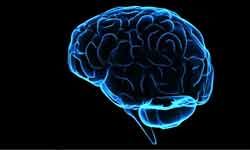In June 2007, Chris Benoit, a 40-year-old professional wrestler, killed his son, his wife and then himself. It's easy to be baffled by such a tragedy, but in the case of Benoit, his brain contained clues as to what could push a person toward such violent behavior. Doctors from the Sports Legacy Institute, which is dedicated to the study of brain injuries in athletes, examined Benoit's brain. Their tests showed that it was riddled with the clumps, tangles and dead cells characteristic of Alzheimer's disease.
Chris Benoit isn't a unique case. Dr. Julian Bailes, who examined Benoit's brain, described observing a pattern of behavior in other ex-athletes who, after retiring from sports, experienced severe personal and business problems, eventually followed by depression and suicide [source: ABC News].
Advertisement
So how did a 40-year-old man have a brain comparable to that of an 85-year-old man with severe Alzheimer's?
A concussion is literally a bruise to the brain. When a person experiences a blow to the head or the head shifts too suddenly, the brain moves through the cerebral fluid and can hit the interior of the skull. A concussion can knock a person unconscious and cause memory loss, confusion, headaches, dizziness and ringing in the ears. It can also impair one's ability to think and speak clearly.
A Grade One concussion results in temporary disorientation without unconsciousness, and symptoms disappear within 15 minutes. A Grade Two concussion is like a Grade One except that symptoms last 15 minutes or longer. A Grade Three concussion, sometimes called a classic concussion, is the most severe, characterized by loss of consciousness, no matter how brief.
After any concussion, a person's brain is extremely vulnerable for at least a few days. Any further concussions, or so-called "mini concussions," during this period can significantly compound the damage already inflicted. Another concussion could be fatal, which is sometimes the case with second impact syndrome, when the brain and its arteries swell dangerously.
Symptoms that linger after a concussion are often referred to as post-concussion syndrome. These include anxiety, headaches, nausea, memory lapses, dizziness and difficulty sleeping and concentrating. Numerous professional athletes have had to retire because of persistent symptoms of post-concussion syndrome. Making matters more difficult is that the effects of post-concussion syndrome may not show up in an MRI or CT scan.
Besides all of the obvious dangers of concussions, increasing evidence shows that repeated concussions, particularly in athletes, can lead to early-onset dementia and similar disorders. With at least three concussions, the risk of early-onset Alzheimer's disease increases fivefold [source: Cantu].
Let's look at how concussions can be devastating for even the most physically capable among us.
Advertisement



